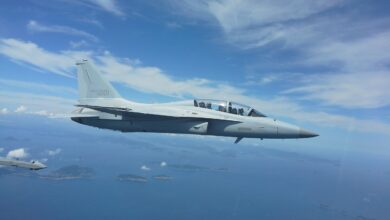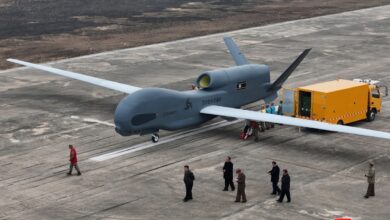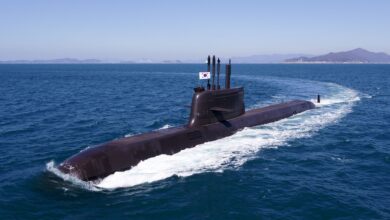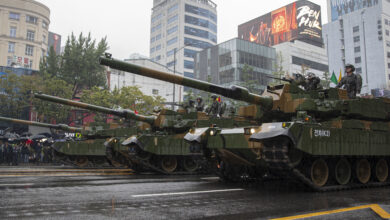S. Korean Defense System ‘Blinds’ Incoming Missiles With Laser
South Korea has announced that it has tested an indigenous counter missile system for military aircraft to evade enemy portable surface-to-air missiles.
The directional infrared countermeasures (DIRCM) system enables aerial vehicles to dodge missiles by emitting a laser beam, which blinds incoming missiles that rely on heat detection to trace and target jets. The system can also be used in larger aircraft when enhanced with stronger laser output.
“The system is significant that it has drastically shortened the response time, enabling aircraft to guard against portable surface-to-air missiles from a close range,” South Korea’s state-owned Agency for Defense Development said in a statement.
The agency also said that the defense system is ready for deployment.
South Korea has been working on the DIRCM since 2014 when a prototype of the weapon system was developed. In 2018, the system passed initial development tests.
Developing ‘Iron Dome’-Style Defense System
In June 2021, South Korea announced its plans to develop an artillery interception system, similar to Israel’s “Iron Dome,” designed to protect against North Korea’s arsenal of long-range artillery.
The weapon system will cost South Korea an estimated 2.89 trillion South Korean won ($2.6 billion).
The development of the weapon system, which will be likely completed by 2035, comes as North Korea has developed the capability to fire 16,000 rounds of long-range artillery per hour.
THAAD and Patriot Defense Systems
South Korea also possesses the Terminal High Altitude Area Defense (THAAD), an easily transportable, ground-based missile defense system, acquired from the US. The anti-ballistic missile defense system is designed and manufactured by Lockheed Martin.
The system protects against hostile incoming threats, including short and medium-range ballistic missiles up to a range of 200 kilometers (124.2 miles) and an altitude of 150 kilometers (93.2 miles).
The country also possesses the Patriot, a long-range, all-weather, all-altitude air defense system, also procured from the US. Apart from South Korea, several European and Middle Eastern countries, including Germany, Greece, the Netherlands, Israel, Japan, Kuwait, Saudi Arabia, and UAE, deploy the weapon system.
It has a range of 70 kilometers (43.49 miles) and an altitude of up to 24 km (14.9 miles). South Korea ordered 64 upgraded Patriot missiles in 2008. The upgraded version of the Patriot, the Guidance Enhanced Missile, is equipped with a track-via-missile guidance system, which offers midcourse correction commands.












